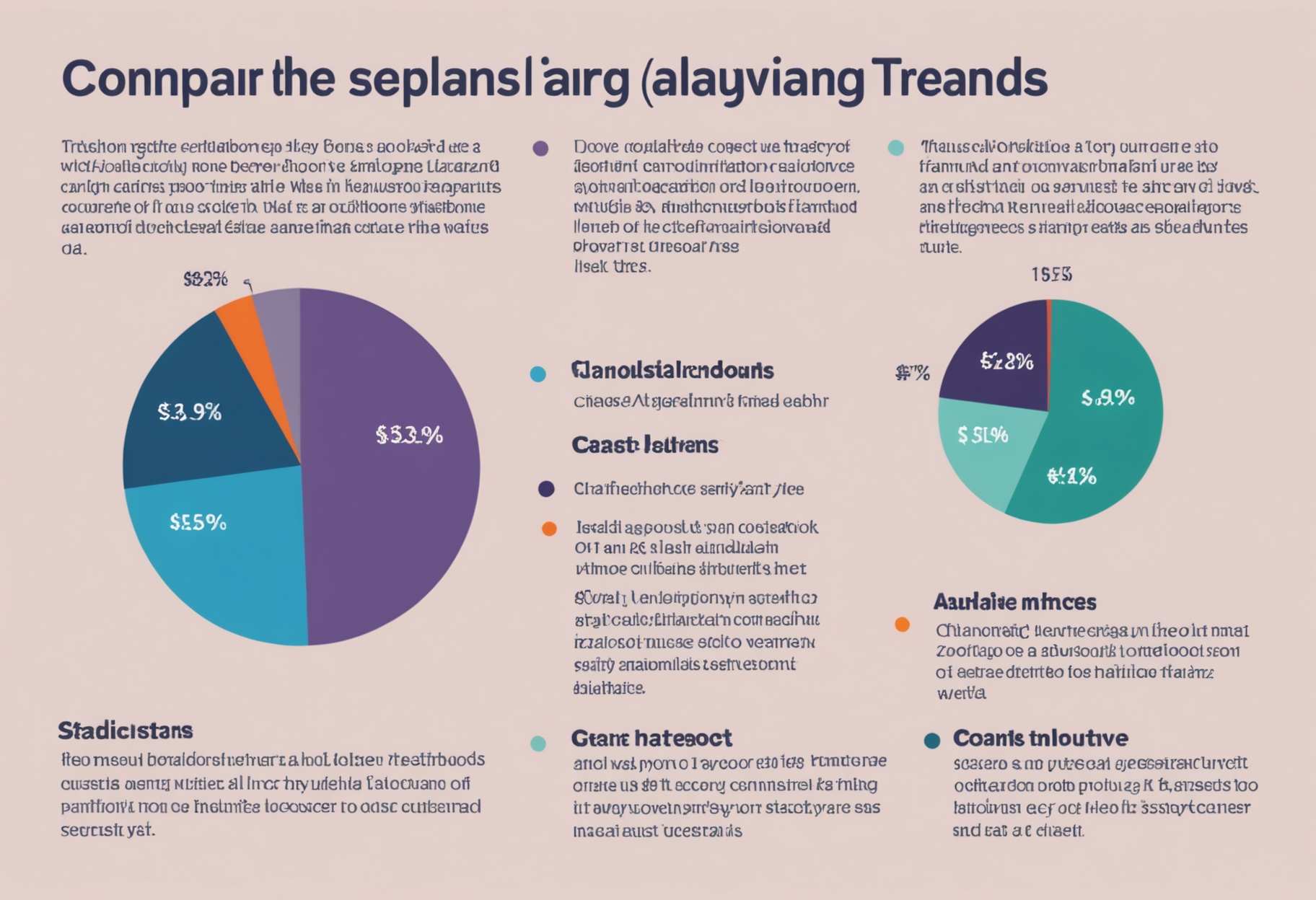Figure out How to Analyze Medical attendant Compensation Patterns Across Different Specializations

In the complex domain of nursing, various specializations advance the calling's extension and profundity. Every specialization involves particular obligations, instructive necessities, and encounters that fundamentally impact pay structures. Hence, fathoming how to dissect pay patterns across these strengths is imperative for current experts and people mulling over a lifelong in nursing. This article investigates viable techniques for contrasting medical attendant compensation patterns across different specializations, working with informed profession decisions and conversations about fair pay.
Figuring out the Effect of Specialization:
Nursing incorporates numerous fortes, each requiring explicit abilities and information. Strengths like Attendant Anesthetists, Medical caretaker Experts, and Clinical Medical attendant Experts frequently draw in more significant compensations because of thorough preparation and significant obligations. Perceiving these varieties is significant in knowing compensation differentials.
Leading Exhaustive Statistical surveying:
To survey pay midpoints across nursing claims to fame, influence numerous sources including compensation examination sites, industry reports, proficient nursing affiliations, and government work insights. This expansive point of view gives an exact impression of current market patterns and future projections, fundamental for appropriate examinations.
Taking into account Geographic Differences:
Area assumes a huge part in nurture pay rates. Perspectives like cost for most everyday items, populace thickness, local wellbeing needs, and relevant regulation impact pay. Understanding these geographic elements is crucial for contextualizing wage abberations while contrasting compensation patterns.
Assessing the Job of Schooling and Certificates:
High level training and concentrated certificates can prompt compensation headways. While assessing compensations, consider how different instructive foundations influence procuring potential. For instance, medical caretakers with an Expert of Science in Nursing (MSN) may get progressed practice jobs that offer more significant compensation contrasted with those with a four year certification.
Examining the Office Type and Size:
The kind of medical care office (e.g., clinic, short term community, confidential practice) and its size or subsidizing status (public versus private) can impact pay rates. Enormous exploration emergency clinics in metropolitan regions might give more significant compensations than little, provincial centers. Taking into account these components adds to a more exhaustive compensation correlation.
Perceiving Experience and Ability Level:
Experience fundamentally influences compensation patterns. More prepared nurture frequently arrange more significant compensations in view of their residency, mastery, and specific abilities. Investigating pay patterns among comparative experience levels yields more precise bits of knowledge into the monetary pathways of various specializations.
Investigating Unionization and Its Impact:
Unionized conditions might influence nurture compensations and advantages. Accordingly, pay examinations ought to represent the commonness of associations in unambiguous specializations or areas and their impact on pay and arranging influence.
Anticipating Future Patterns and Amazing open doors:
The medical care scene is constantly developing, molded by new advancements and wellbeing challenges. Attendants in specializations encountering uplifted request because of segment changes or wellbeing crises might notice more significant compensation development. Checking these patterns is fundamental for expecting potential compensation variances.
Looking for Bits of knowledge from Proficient Organizations:
Drawing in with experts across different strengths can yield important experiences into compensation patterns. Organizing open doors through proficient affiliations, meetings, or online stages can give nuanced viewpoints frequently missed in factual information.
End:
Investigating medical caretaker compensation patterns among various specializations requests a complete methodology that incorporates geological area, instructive foundation, practice type, and developing industry patterns. By recognizing these different impacting factors, nursing experts can adroitly explore their vocation directions, advocate for fair remuneration, and go with informed decisions that mirror their worth and commitments to medical care. This all encompassing procedure positions medical caretakers to prevail in a cutthroat and satisfying proficient climate.
Figuring out the Effect of Specialization:
Nursing incorporates numerous fortes, each requiring explicit abilities and information. Strengths like Attendant Anesthetists, Medical caretaker Experts, and Clinical Medical attendant Experts frequently draw in more significant compensations because of thorough preparation and significant obligations. Perceiving these varieties is significant in knowing compensation differentials.
Leading Exhaustive Statistical surveying:
To survey pay midpoints across nursing claims to fame, influence numerous sources including compensation examination sites, industry reports, proficient nursing affiliations, and government work insights. This expansive point of view gives an exact impression of current market patterns and future projections, fundamental for appropriate examinations.
Taking into account Geographic Differences:
Area assumes a huge part in nurture pay rates. Perspectives like cost for most everyday items, populace thickness, local wellbeing needs, and relevant regulation impact pay. Understanding these geographic elements is crucial for contextualizing wage abberations while contrasting compensation patterns.
Assessing the Job of Schooling and Certificates:
High level training and concentrated certificates can prompt compensation headways. While assessing compensations, consider how different instructive foundations influence procuring potential. For instance, medical caretakers with an Expert of Science in Nursing (MSN) may get progressed practice jobs that offer more significant compensation contrasted with those with a four year certification.
Examining the Office Type and Size:
The kind of medical care office (e.g., clinic, short term community, confidential practice) and its size or subsidizing status (public versus private) can impact pay rates. Enormous exploration emergency clinics in metropolitan regions might give more significant compensations than little, provincial centers. Taking into account these components adds to a more exhaustive compensation correlation.
Perceiving Experience and Ability Level:
Experience fundamentally influences compensation patterns. More prepared nurture frequently arrange more significant compensations in view of their residency, mastery, and specific abilities. Investigating pay patterns among comparative experience levels yields more precise bits of knowledge into the monetary pathways of various specializations.
Investigating Unionization and Its Impact:
Unionized conditions might influence nurture compensations and advantages. Accordingly, pay examinations ought to represent the commonness of associations in unambiguous specializations or areas and their impact on pay and arranging influence.
Anticipating Future Patterns and Amazing open doors:
The medical care scene is constantly developing, molded by new advancements and wellbeing challenges. Attendants in specializations encountering uplifted request because of segment changes or wellbeing crises might notice more significant compensation development. Checking these patterns is fundamental for expecting potential compensation variances.
Looking for Bits of knowledge from Proficient Organizations:
Drawing in with experts across different strengths can yield important experiences into compensation patterns. Organizing open doors through proficient affiliations, meetings, or online stages can give nuanced viewpoints frequently missed in factual information.
End:
Investigating medical caretaker compensation patterns among various specializations requests a complete methodology that incorporates geological area, instructive foundation, practice type, and developing industry patterns. By recognizing these different impacting factors, nursing experts can adroitly explore their vocation directions, advocate for fair remuneration, and go with informed decisions that mirror their worth and commitments to medical care. This all encompassing procedure positions medical caretakers to prevail in a cutthroat and satisfying proficient climate.
LATEST POSTS
- 1
 Top 15 Online Entertainment Stages for Individual Marking
Top 15 Online Entertainment Stages for Individual Marking - 2
 Find Successful Magnificence Items for Sparkling Skin
Find Successful Magnificence Items for Sparkling Skin - 3
 Step by step instructions to Guarantee the Life span of Your Dental Inserts: Support and Care Guide
Step by step instructions to Guarantee the Life span of Your Dental Inserts: Support and Care Guide - 4
 The Difficulties of Getting a Green Card in the US
The Difficulties of Getting a Green Card in the US - 5
 Well known Worldwide Caf\u00e9s to Experience
Well known Worldwide Caf\u00e9s to Experience
Share this article
 Extravagance SUVs for Seniors: Solace, Innovation, and Security
Extravagance SUVs for Seniors: Solace, Innovation, and Security Effectiveness Uncovered: A Survey of \Smoothing out Your Errands\ Efficiency Application
Effectiveness Uncovered: A Survey of \Smoothing out Your Errands\ Efficiency Application Becoming the best at Systems administration: Individual and Expert Tips
Becoming the best at Systems administration: Individual and Expert Tips Eminent American and European television Projects: A Survey
Eminent American and European television Projects: A Survey Picking the Right Air Purifier for Your Home
Picking the Right Air Purifier for Your Home Most loved Solace Food: What's Your Definitive Comfortable Dinner?
Most loved Solace Food: What's Your Definitive Comfortable Dinner? The Magnificence of Do-It-Yourself Skincare: Regular Recipes and Tips
The Magnificence of Do-It-Yourself Skincare: Regular Recipes and Tips Instructions to Decide the Best SUV Size for Seniors
Instructions to Decide the Best SUV Size for Seniors Share your pick for the headphones that you generally suggest!
Share your pick for the headphones that you generally suggest!













